Hidden Brain
Hidden Brain helps curious people understand the world – and themselves. Using science and storytelling, Hidden Brain reveals the unconscious patterns that drive human behavior, and the biases that shape our choices.
Episodes
-

People Like Us: How Our Identities Shape Health And Educational Success
Generations of Americans have struggled against segregation. Most of us believe in the ideal of a colorblind society. But what happens when that ideal come up against research that finds colorblindness sometimes leads to worse outcomes?
-
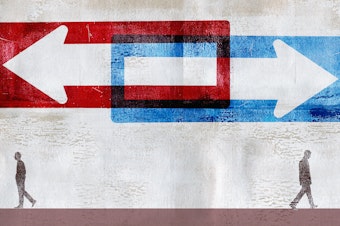
More Divided Than Ever? Excavating the Roots Of Our Political Landscape
Many of us intuitively feel that the bitter partisanship of American politics is bad for our nation. So should we be concerned about the health of our democracy? This week on Hidden Brain, we revisit two of our favorite conversations about U.S. politics. We start by talking with political scientist John Hibbing about the psychological differences between liberals and conservatives. Then, we explore the role of conflict in democracy with historian David Moss.
-
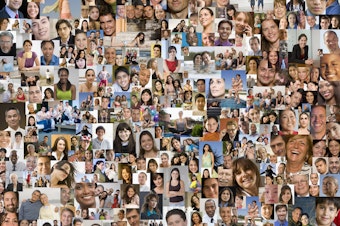
Some People Are Great At Recognizing Faces. Others...Not So Much
It happens to all of us: someone recognizes you on the street, calls you by name, and says hello. You, meanwhile, have no idea who that person is. Researchers say this struggle to read other faces is common. This week on Hidden Brain, we revisit a favorite 2016 episode about "super-recognizers" and the rest of us.
-
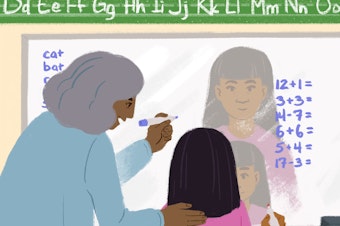
What's Not On The Test: The Overlooked Factors That Determine Success
Smarts matter. But other factors may play an even bigger role in whether someone succeeds. This week, we speak with Nobel Prize-winning economist James Heckman about the skills that predict how you'll fare in life. We'll also look at programs that build these skills in the neediest of children – and new research that suggests the benefits of investing in kids and families can last for generations.
-
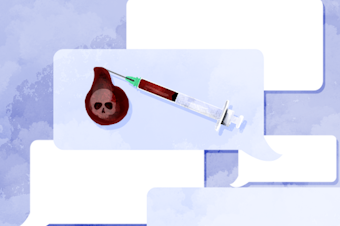
Facts Aren't Enough: The Psychology Of False Beliefs
Sometimes, when we believe something, no amount of data can change our minds. This week, why we cling to our beliefs — even when they're wrong.
-

Where Does Religion Come From? One Researcher Points To 'Cultural' Evolution
If you've taken part in a religious service, have you ever stopped to think about how it all came to be? How did people become believers? Where did the rituals come from? And what purpose does it all serve? This week, we bring you a July 2018 episode with social psychologist Azim Shariff. He argues that we should consider religion from a Darwinian perspective, as an innovation that helped human societies to thrive and flourish.
-

All The World's A Stage—Including The Doctor's Office
Placebos belong in clinical trials, not in the doctor's office. At least, that's been the conventional wisdom for decades. This week, we ask whether placebos have more to offer than we've realized, and what they might teach us about healing. For research related to this episode, please visit: https://n.pr/2B9v2B0
-
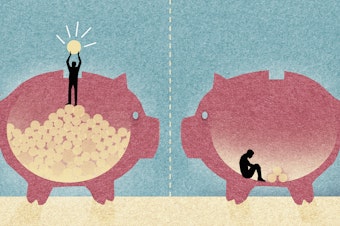
Why No One Feels Rich: The Psychology Of Inequality
If you've ever flown in economy class on a plane, you probably had to walk through the first class cabin to get to your seat. Maybe you noticed the extra leg room. The freshly-poured champagne. Maybe you were annoyed, or envious. Social psychologist Keith Payne says we tend to compare ourselves with those who have more than us, but rarely with those who have less. This week, we explore the psychology of income inequality, and how perceptions of our own wealth shape our lives.
-

What Can A Personality Test Tell Us About Who We Are?
The desire to find our tribe is universal. We like to know who we are and where we belong. This fascination has led to a thriving industry built on the marketing and sale of personality tests. These tests offer individuals – and, increasingly, employers – quick and easy insights that can be used to make some of life's biggest decisions. But most fail to stand up to scientific scrutiny. This week, we revisit our 2017 episode about the world of personality testing, and explore the many different ways we assess personality and potential – from the Chinese zodiac to Harry Potter houses to the Myers-Briggs test.
-

Radically Normal: How Gay Rights Activists Changed The Minds Of Their Opponents
For generations, living openly as a gay person in the United States was difficult, and often dangerous. But there's been a dramatic change in public attitudes toward gay people. This week, we explore one of the most striking transformations of public attitude ever recorded. And we consider whether the strategies used by gay rights activists hold lessons for other groups seeking change.
-

Don't Panic: Stories Of Coping Amidst Chaos
Chaos is a part of all of our lives. Sometimes we try to control it. And other times, we just have to live with it. On this week's Hidden Brain, we bring you two of our favorite stories about coping with chaos. They come from our 2016 episodes "Panic in the Streets" and "Embrace the Chaos."
-

What Twins Can Tell Us About Who We Are
In December 1988, two pairs of twin boys were born in Colombia. One twin from each pair was accidentally given to the wrong mother — a mistake that wasn't discovered for decades. The twins' story is a tragedy, a soap opera, and a science experiment, all rolled into one. It also gives us clues about the role that genes and the environment play in shaping our identities. We talk with psychologist Nancy Segal about her work with twins, and her encounters with these now-famous brothers. For research related to this episode, please visit https://n.pr/2uvpvPe